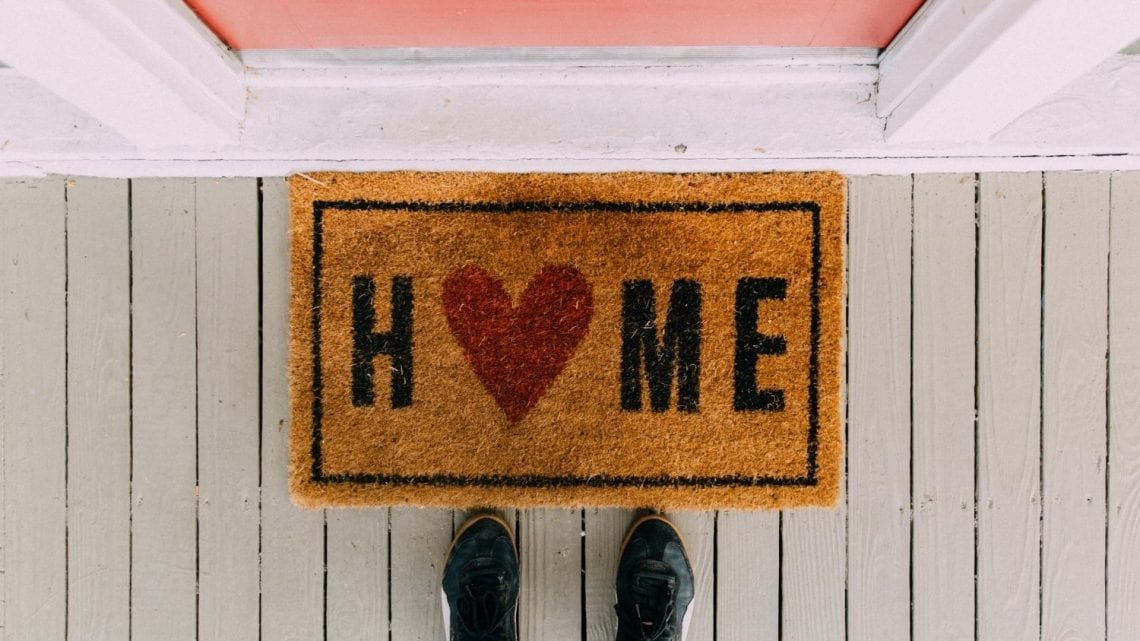
How to live well, alone
This post includes a small number of sponsored links from trusted partners.
My own journey to living well alone has been a long and winding one. At its heart, it’s been a journey of self-discovery. Of getting to know and like myself, and of working out what I need (and don’t need) in my life in order to feel deeply fulfilled. It’s also been about getting good at the practicalities – from being frightened of using an electric screwdriver to taking on entire bathroom refurb and gardening projects. It’s also been about connection, confidence, and finding enough self-belief to know that I’ll be okay – even when life doesn’t work out the way I might expect it to.
Advice on learning to live well alone is hard to fit into one blog post! There’s a lot of ground to cover, and it takes time, patience, and trial and error. The ten ideas I’ve pulled together here are a starting point based on my own and others’ experience. If you do nothing else, then spending some time on each of these will set you off in the right direction towards positive solo living.
1. Get the basics sorted
When you’ve only ever lived with someone else, it’s inevitable there’ll be some tasks that other people usually handled. That could be the finances, DIY, cooking, grocery shopping, planning trips, or buying new appliances. When you live alone, you become responsible for managing your entire household. That can feel overwhelming at first, particularly if there are things you’ve never done before.
Learning to live well alone is about getting to grips with the practicalities as much as anything else. It’s worth investing in a beginners toolkit, a couple of cookbooks, and some basic kitchen equipment if you don’t already have these. Work out the practical issues which are causing you the greatest anxiety, and prioritise getting your head around the basics. Particularly when it comes to finances and the upkeep of your home, it’s really important not to bury your head in the sand. There are thousands of articles and YouTube videos online on everything from how to build shelves, and it’s quite often possible to teach yourself what you need to know. Try asking an expert friend for a free lesson, invest in books and online courses, and – crucially – just give it a go. You won’t get everything right the first time around, but even if you make a mistake, you’ll have learnt something and will feel more confident next time.

2. Make it a choice
For some, living alone feels like a positive choice – a step into independence and greater economic security. For others, it’s just the place we end up after changes in other life circumstances – whether divorce, separation, bereavement, or children leaving home, or leaving an institutional setting. If we’re past a certain age, then we often feel as though living alone is the only option open to us if we’re not part of a couple.
It’s worth remembering that no matter our situation, we all feel better when we feel we have some control over our circumstances. That includes where and how we live. If living alone is something that you have fallen into, it can pay to take some to work out if it’s really what you want. Living alone isn’t for everyone, and there are usually creative alternatives available to those who are genuinely interested in looking for them. This could include renting or lending out a spare room, various types of shared living community, or even just staying with friends and family. Ultimately, we know that people who start to really enjoy living alone come to think of it as a positive choice, even if it wasn’t how they saw things turning out. If that isn’t how you feel, then it might be worth looking into other options.
3. Accept your starting point
When you start living alone, it’s easy to spend a lot of time wondering how you got here – and beating yourself up if your life doesn’t look the way you or others around you think it should. The simple truth is that you cannot change what’s happened in the past. What you can do is to learn lessons from it, from the choices that you and others have made, and from what’s happened, and to take the good parts forward. Starting to live well alone is about accepting that your starting point is your starting point, however difficult or unsatisfactory it may be for you. You cannot change it, but you can grow your life from this point forwards. If you need to do some work to get a place of accepting your starting point and feeling able to focus on the future, then journaling and talking through what’s happened can really help, especially if you have been through trauma.
4. Get to know yourself
Living alone gives you the opportunity for self-discovery. Without distractions, you have a chance to really get to know yourself as a unique individual, possibly in a way that you never have before. Pay attention to what you really like and dislike – what are you doing because it’s something you’ve always done, or feel a duty to do? It took me a long time to realise that I really didn’t like broccoli, and I was eating it because that’s just what I’d always done. Now I put it in smoothies instead of steaming it, and I’m much happier for it! What are the things you’ve always wanted to do? What could you try doing that you haven’t before? How do you feel in certain situations? Getting to know yourself in the same way that you would a new partner or a friend can help you to feel more confident in deciding what you allow in to your life, and what you say no to – and will ultimately help you build a life that feels deeply fulfilling.

5. Invest in your home
One of the greatest freedoms of living alone is being able to organise and decorate your space exactly as you want to. You may feel guilty about making changes if you’ve previously shared your home with someone else, and it’s normal to feel like this. It’s also important to know that it really is okay to start to make the space your own. Start small if that makes it feel more manageable. Gradually moving things around your home to places that suit the way you now live. Or adding splashes of colour with new cushions, photographs or wall art. Over time, designing a space that reflects your tastes can be a powerful way to discover or rediscover your identity. As well as turning your home into a sanctuary that you enjoy coming back to, and where you feel safe and relaxed.
6. Identify and plan for your trigger times
When you first start living alone, there’ll probably be times of the day and week when you struggle more with being by yourself. This is different for everyone, however we often hear about evenings and weekends, as well as the moments when you are on your way home from a gathering, when friends / family have left, or when you are sick. Make a note of the times when you feel your alone-ness most keenly, and have a think about what it is about those times that is particularly triggering or difficult. Have a plan of action. This could be about reaching out proactively to others to make plans at the weekends, organising an exercise class for after work, dancing to music, or doing something really lovely for yourself like making a beautiful meal.
Even just a simple mindset shift can help. If you feel sad because your loved ones have left, try writing down five things you are grateful for about having them in your life, and the time you have just spent together.
7. Focus on meaningful connections
We now know that living alone is not a predictor of loneliness. It’s perfectly possible to live alone with a small number of friends and connections, and never feel lonely at all. It’s also perfectly possible to be surrounded with a large number of people, and to feel incredibly lonely. At its heart, loneliness is a mismatch between the number and quality of connections you need, and the connections you already have. We all have connections with other people, but not all of those are meaningful. It can be tempting to spend our time with people who are not particularly good for us as an alternative to feeling alone. This can actually increase feelings of loneliness, particularly if the investment we’re making isn’t reciprocated.
How supported do your current connections make you feel? Do you get back as much as you put in? Who in your life is supportive of your goals and ambitions? Who is there for you when you just need to pick up the phone to someone? These are the people to focus on. Similarly, it’s worth asking yourself whether there’s more you could do to deepen and strengthen your connections. This starts with asking good and meaningful questions, really listening / hearing what others are saying, sharing your feelings, and being willing to vulnerable where you feel this will be honoured.

8. Develop a passion, and get absorbed in it
When you live alone, you’ll find you have more time that’s your own to decide what to do with. Use is wisely, and in ways that brings you joy. Now is your time. Create something – write a book, start a blog, learn to paint or draw. Learn a language, join a walking group, learn how to bake or cook. Study, start a business, take up yoga. Perhaps it might even be the right time to consider moving jobs, or even a complete career change. Find something that gives you a feeling of control and certainty, and that absorbs you completely for a few hours at a time.
9. Practice self-care
Self-care is about being aware of and responding to your own emotional and physical needs. If you’re used to putting others’ needs before your own, it can be a real shift to give yourself permission to do the same for yourself – or even to know where to start. Focusing on the basics can help – eating healthily, exercising regularly, and getting enough sleep. Invest in ‘beautiful moments’ by consciously appreciating and making the most of ordinary, everyday events. Why not try investing in some really beautiful fresh coffee instead of your usual instant, buying yourself some flowers, or taking a bath instead of a shower using some gorgeous bath products? And pay attention to how you feel and respond to different situations you find yourself in.
10. Consider a pet
Around half of people who live alone have a pet, and there are good reasons for this. Spending time around pets has a range of health benefits, including boosting serotonin, and can also be a great source of company. As well as a good conversation starter / ice breaker when you are out and about!
Conclusion
Tens of thousands more people start living alone every year, for a whole variety of different reasons. With time, living alone can be a deeply fulfilling way to live, even if it’s an unexpected one. Getting to grips with the practical and emotional aspects of living alone is a crucial step towards starting to live well alone. The steps in this post can help.
Enjoyed this post? See the greatest freedoms of living alone. For the latest news, exclusive updates and offers from the Living Well Alone Project, leave your email address with us for our fortnightly newsletter!






3 Comments
J. Wallace
Excellent article. I’ve lived alone for decades. The older I get the more I love it.
Hannah Carmichael
Thank you 🙂 What a lovely comment! Welcome to the Project.
Debbie Edelman
Loved the article!!